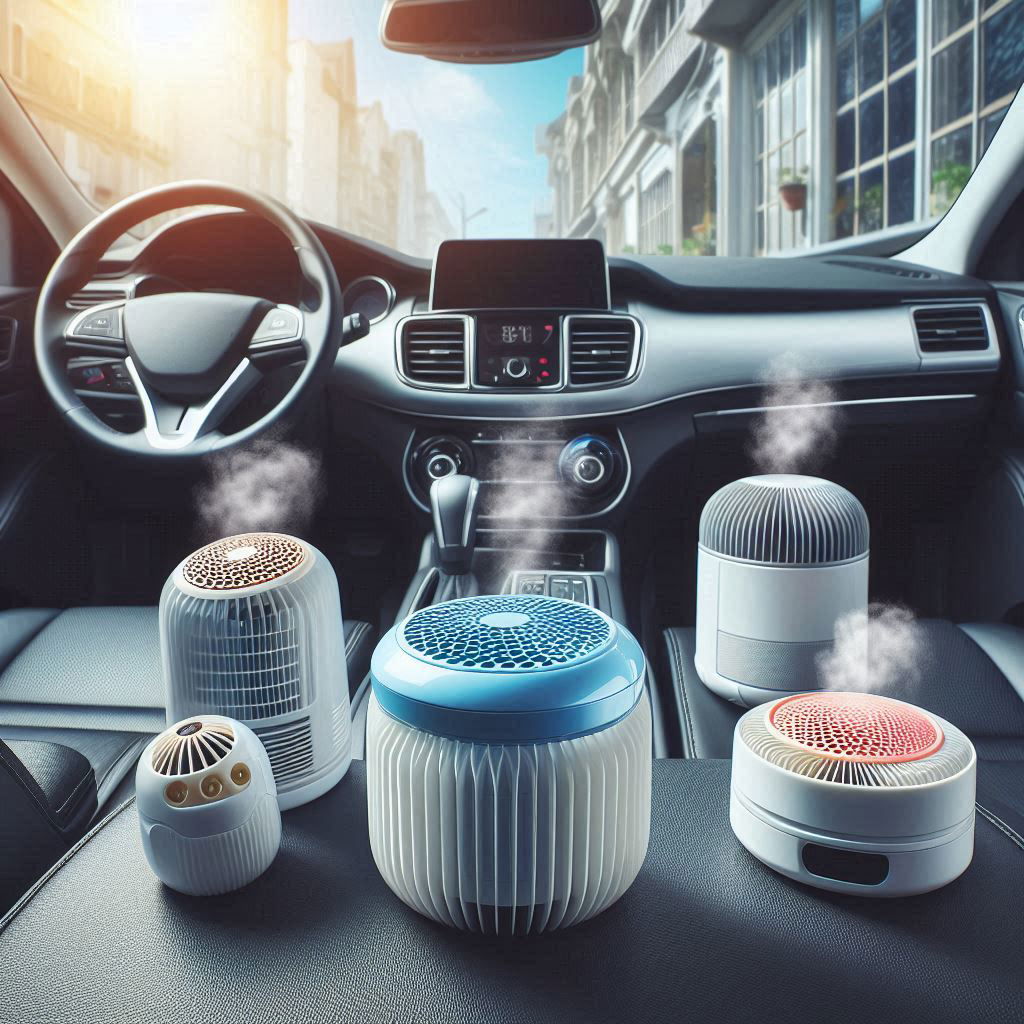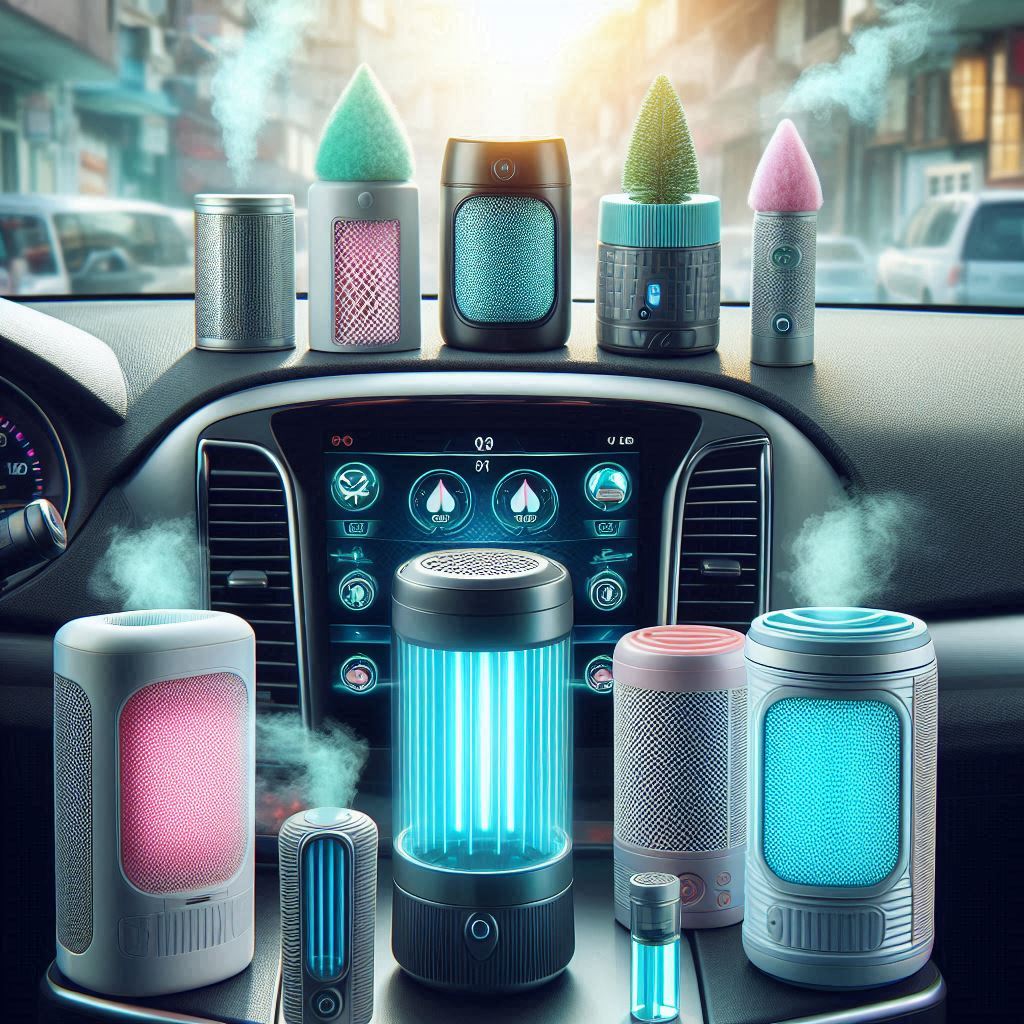Car Air Purifiers: Breathe Clean Air

Introduction
Picture this: you’re cruising down the highway, wind in your hair, and the open road stretching ahead. But wait—what’s that tingling smell? Is it exhaust fumes through the rusty door or fast-food wrappers endlessly blowing through your open window? The truth is, the air inside your car isn’t as fresh as you might think. That’s where car air purifiers save the day. In this article, let’s talk about the benefits of these compact devices, how they work, and why every car owner should consider one.
The Invisible Culprits
Cars are like mini ecosystems. They capture dust, pollen, pet dander, and even harmful gases from traffic in their confines. Add to that the occasional spilled coffee or forgotten gym bag, and you’ve got a recipe for less-than-ideal air quality. Breathing in these pollutants can cause allergies, fatigue, and even long-term health issues.
How Car Air Purifiers Work
Filtration Magic
Car air purifiers operate on the same principle as their larger counterparts. Here’s how they work:
- HEPA Filters: Most purifiers use High-Efficiency Particulate Air filters. These traps tiny particles down to 0.3 microns with a whopping efficiency. Dust, pollen, even some bacteria don’t pass through!
- Activated Carbon: Ever wondered why car purifiers have that black mesh? It’s activated carbon! This porous material absorbs odors, volatile organic compounds, and harmful gases. Say goodbye to that stinky fast-food smell.
- Ionizers: These purifiers release negative ions into the air which attach to the positively charged dust molecules, making them heavier. As a result, they settle down. It can also neutralize bacteria and viruses.
Safety Tips for Using Car Ionizers
Car ionizing devices are a great addition to any vehicle, but it is important to mention that in some cases, they can be harmful to your health. Here is how you can use your car air ionizer safely:
- Ventilation
- Ionizers work by adding ionized particles to the air. While the ions are beneficial in reasonable doses, they may build up in the car if the air is poorly ventilated. Always allow at least an inch of opening for each window near the ionizer.
- Certification and Quality
- The most effective and safest options are certified by the California Air Resources Board or the Environmental Protection Agency.
- Distance from Source
- Position the ionizer in a less direct proximity to the passengers. Fresh air is added by the ionizer to the air around it, so sitting farther away from the source minimizes exposure to newly generated ions.
- Follow Manufacturer’s Instructions
- It is important to read and follow the manufacturer’s directions regarding proper usage.
- Ozone Generation
- Some ionizing devices can generate ozone as a byproduct of their operation. Prolonged exposure to ozone can cause health issues. You should avoid this type of ionizer.
Benefits of Car Air Purifiers
Healthier Breathing
Using ionizers can help to provide a cleaner atmosphere in the car, which is beneficial for everyone, especially children and those with respiratory issues.
Odor Elimination
Remember that gym bag? An excellent air purifier eliminates odors, making your vehicle smell fresh without the need for air fresheners.
Improved Focus
Clean air enhances your cognitive abilities. Whether working at the office or exploring a new location in your car, a purifier can keep your mind sharp.
Protection Against Harmful Gases
Traffic emissions are filled with toxic gases like nitrogen dioxide and carbon monoxide. A good car purifier can reduce your exposure to these harmful chemicals.
Choosing the Right Car Air Purifier
Size
Consider the size of your vehicle. A small purifier can rest in a cup holder near the air conditioner, while a larger device must be accommodated elsewhere.
Noise
Make sure that the noise level produced by the purifier is appropriate. You don’t want a loud hissing while listening to music or talking on the phone.
Filter Maintenance
Check how often you will have to maintain the filter. Most last about six months, but you should choose wisely if you prefer low-maintenance options.
Conclusion
Vehicle purifiers are not just modern age gizmos. They are our shields protecting our lungs against the unforgiving environment. Let clean air accompany you on your next road trip. Your lungs and every passenger in the vehicle will thank you.
